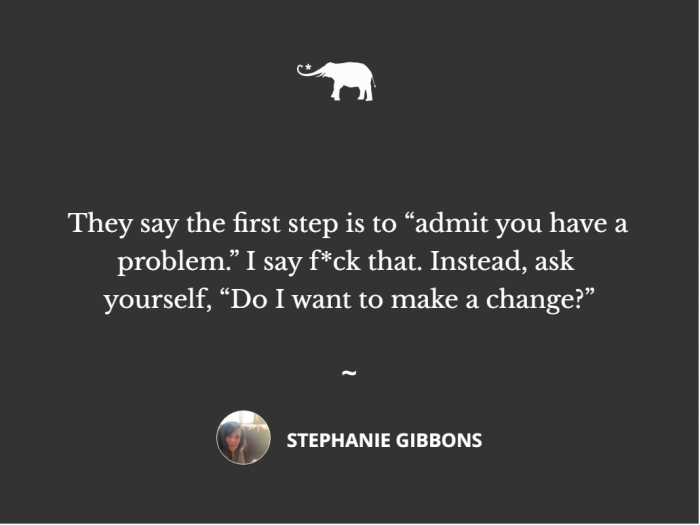View this post on Instagram
I’m 16 months alcohol-free.
Up until roughly 500 days ago, I was a “gray area” drinker. (Jolene Park coined the term, and she’s dead-on.)
From her work, I learned that addiction isn’t binary. It’s not “people who can drink” versus “homeless people drinking mouthwash under a bridge.” Addiction is a scary-wide spectrum that can sneak up on you. And man, it startled the f*ck out of me.
I started drinking at 15 to ease social anxiety and fit in because I always felt so different. Over the years, booze became part of every weekend, every celebration, every outdoor event, every birthday, every holiday, every brunch, every night out, every breakup, every relationship, every vacation, every thing.
For years, that felt normal. It seemed like I was drinking just like everyone else. Life carried on that way for two decades with minimal consequences, at least in the eyes of the law and the healthcare system. I upgraded from drinking Budweiser cans as a teenager to drinking cosmos and discussing “Sex & The City” with my best friends in our 20s. That went on for another 10 years, until I fully embraced the mommy wine culture after marriage and two sons. And slowly but surely, wine became necessary to get through the day. It became the only way to cope or transition, and that scared the hell out of me because I didn’t want it to impact my boys and my ability to be a good wife, mother, person.
But I didn’t know how to ask for help. I couldn’t have “a problem,” right? Good education. Good job. Solid marriage. Happy home. Healthy kids. That’s not the picture of someone with a booze problem. Couple that with the twisted mommy wine culture, which told me to “wine because my kids whine,” and it was the perfect storm that enabled me to ignore my instincts. Instincts that were screaming at me to stop drinking alcohol. In the end, I didn’t believe there were others as scared and as ashamed as I was. I was wrong. Oh, so wrong.
Today, I’m part of Women for Sobriety and I meet with my warriors weekly over Zoom. I’m also part of three online support groups, which when totaled, sum up to around 35,000 individuals. Through this connection, I’ve had the honor of watching women transform over the last year. Transform. I’m grateful beyond words to consider myself part of the revolution that is happening in the recovery community.
They say the first step is to “admit you have a problem.” I say f*ck that. Instead, ask yourself, “Do I want to make a change?” If you do, I can say from the trenches, you are not alone.
Be well, all. 2022 is going to be something.



Read 9 comments and reply